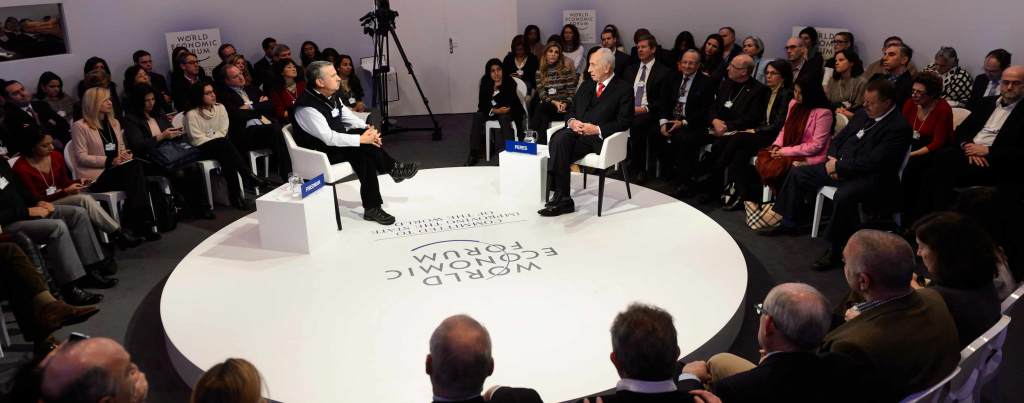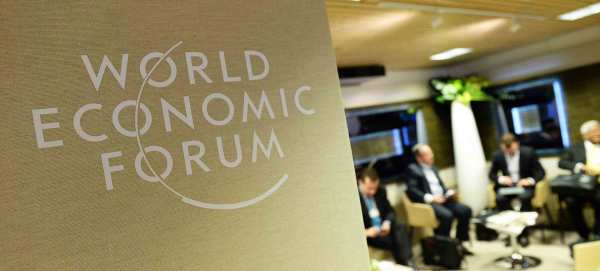 © Laurent Gillieron/Corbis
© Laurent Gillieron/CorbisThis week, world leaders, CEOs, and intellectuals make their annual trek to Davos for the World Economic Forum. From China’s economic turmoil to the global terrorist threat to new disruptive technologies, they will certainly have a lot to talk about. But when that talk inevitably turns to the growing gap between the haves and have-nots, participants should avoid falling back into yesterday’s conversation about inequality.
At Davos and at other global forums, discussions of inequality tend to focus on how large the gap is, how wide disparities have grown, and how extreme inequality hurts those at the bottom. This makes the idea of inequality very one-dimensional—something some of the world’s most influential people come to see as a problem, but not one that really impacts them.
The reality is that extreme inequality impacts everyone, including the one percent. A growing body of evidence shows that inequality undermines long-term economic growth—and, more and more, explains why. In fact, a recent study by the Organization for Economic Cooperation and Development finds that the most important factor inhibiting a country’s growth is the “widening gap between the lower middle class and poor households, compared to the rest of society.” For starters, inequality saps demand and reduces productivity, reducing competitiveness in turn. Economic luminaries like Ben Bernanke and Larry Summers have argued that inequality may contribute to the world’s “savings glut,” which makes it difficult for central banks to promote a more stable global economy.
Inequality not only locks potential workers and consumers out of the marketplace, or out of their most productive roles in the marketplace. It also corrodes the basic social consensus needed to invest in public goods, whether that means infrastructure, clean air, or a fair, transparent and competent tax system.
There has been and continues to be a strong moral argument for tackling inequality. However, as International Monetary Fund Managing Director Christine Lagarde puts it, reducing inequality “is not just morally and politically correct, but it is good economics. You do not have to be an altruist to support policies that lift the incomes of the poor and the middle class. Everybody will benefit.”
So with a strong business case for tackling inequality, what are CEOs supposed to do? What should they “solve for” and how? For starters, business leaders need to move beyond corporate social responsibility (CSR) as traditionally defined. Even though CSR— assuming it’s strategic and sustained—is a good thing and in many cases has generated real social impact, it’s still a sideline part of business for most companies.
Instead, CEOs need to reimagine and reinvent their companies’ core business models to respect and protect basic rights—and beyond that, to generate a positive impact on society. It’s about aligning employment, sourcing and investment models with broader social and environmental goals, and thereby moving business to the high road. It’s about aligning the way markets work with our highest social values. It’s about responding to stakeholders—such as workers and communities—who aren’t necessarily shareholders in the narrow sense.
The benefits to business range from more engaged and productive employees and more loyal customers to significant innovation—the kind that redefines industries over time. Companies moving toward the high road see opportunities for growth and new ways to mitigate risk. And the impacts on inequality range from raising the incomes of those at the bottom to expanding opportunities for entrepreneurship and making public policy more effective.
High road business is not a marketing mantra but a core business proposition, as Zeynep Ton, a professor at MIT’s Sloan School of Management, shows so powerfully in her book, The Good Jobs Strategy: How the Smartest Companies Invest in Employees to Lower Costs and Boost Profits. But that core premise applies far beyond the employment-intensive retail sector that Ton’s research examines in such insightful ways.
No question, we are seeing positive changes at some Fortune 500 companies across a variety of sectors. Among others, Unilever CEO Paul Polman, Aetna CEO Mark Bertolini, Facebook CEO Mark Zuckerberg, and Frank Mars of Mars, Inc. are up-ending conventional, low-road wisdom about supply chains, wage costs, and the value of a company’s lowest paid workers. Other innovators are designing and adopting multi-dimensional standards and reporting to capture a company’s economic, social, and governance performance in ways that go beyond traditional financial disclosures. And the impact is being felt from urban America to the smallholder farms and forest communities in the developing world, albeit on much too small a scale for now.
While the private sector has a central role to play in tackling inequality and creating inclusive economies, the sector cannot do it alone. Workers, consumers, civil society, and governments also have critical roles to play. As consumers, we have a responsibility to spend our money in ways that are consistent with our social and environmental values. We need to ask better questions about the products we buy and demand better information about how companies treat their employees. Ditto for where and how we invest, since investors influence business decisions to put short-term earnings above long-term performance and impact. Workers, in turn, are central to making high road business viable. They are core contributors, not just beneficiaries.
Civil society groups can contribute in a host of important ways, from elevating the public debate and shaping public policy to encouraging consumers to make informed decisions about the businesses they support. For example, Restaurant Opportunities Centers United (ROC), a non-profit organization governed by worker members, is partnering with gurus of mobile commerce to continuously improve a smartphone app that helps consumers find restaurants that do right by their employees. And the Rainforest Alliance has done pioneering work tying consumer choices to the fortunes of hundreds of thousands of poor farmers and vulnerable forest communities facing land grabs and other threats.
Civil society groups play a vital role in building movements for workers’ rights, protections against environmental degradation, and other kinds of progress. But more of them should also think bigger and encourage business models that embrace a more inclusive capitalism, one in which gains are much more broadly shared. ROC is playing both roles, as co-founder Saru Jayaraman explains in her new book, Forked: A New Standard for American Dining. Founded by restaurant workers, ROC saw the need to think bigger, so it helped high-road restaurant owners organize a trade association of their own. Then the organization extended its consumer engagement efforts for the benefit of workers to the entrepreneurs as well.
The world’s governments are also a powerful class of consumer, and local and national policymakers are also beginning to ask themselves what they can do to encourage high-road practices. Policymakers are starting to look at everything from procurement and tax policy to public financing and siting decisions as ways to incentivize businesses to take the high road. From the government perspective there are many potential benefits, from reducing dependence on public assistance to improved skills, population health, economic growth, and climate impact.
It’s not that government’s more traditional roles—to protect basic rights and regulate against illegal and unethical business practices, or offer an up-to-date safety net—are any less important. Those will always matter. But that’s only one side of the equation, and it ignores one of government’s most powerful tools: to reward businesses that make their relationship to society central to what they do.
For all the talk about inequality that will happen this week Davos, we are still in the early stages of operating businesses—let alone entire economies—in line with our highest social and environmental values. And we won’t figure out how to do that, let alone commit to the changes that really matter, unless we are having the right conversations about inequality and how to challenge it.
Check out #InequalityIs, a series from the Ford Foundation exploring inequality in all its forms. Tell us what inequality means to you, using #InequalityIs.


